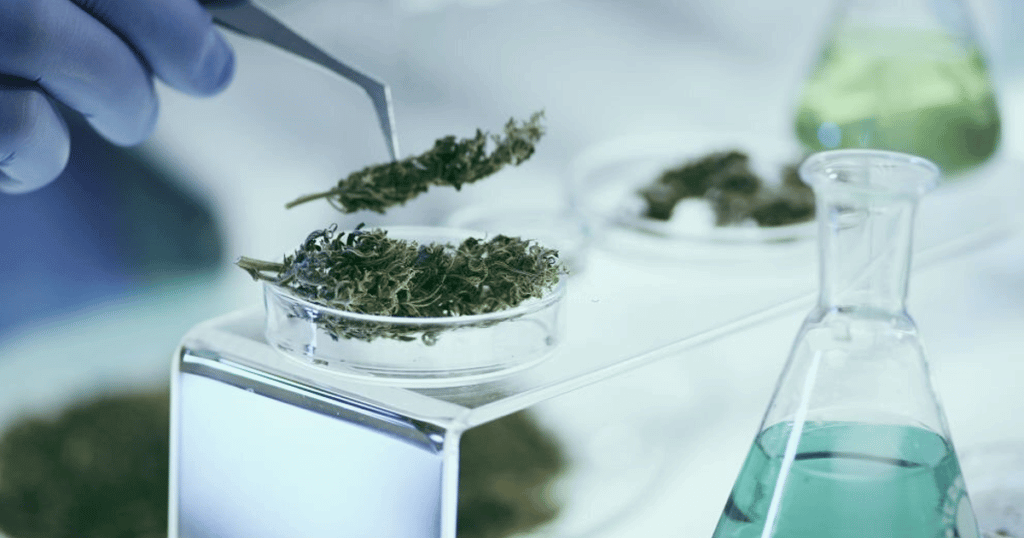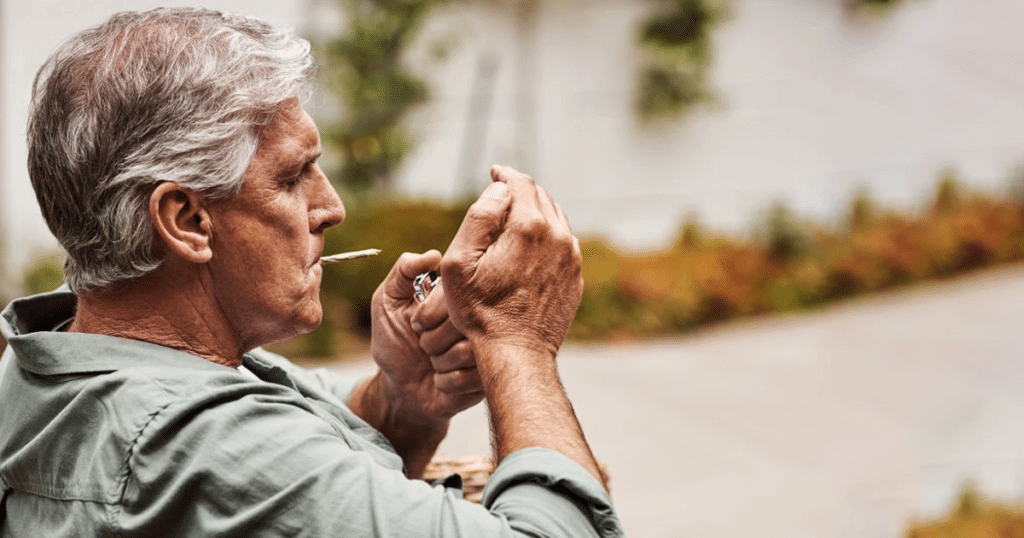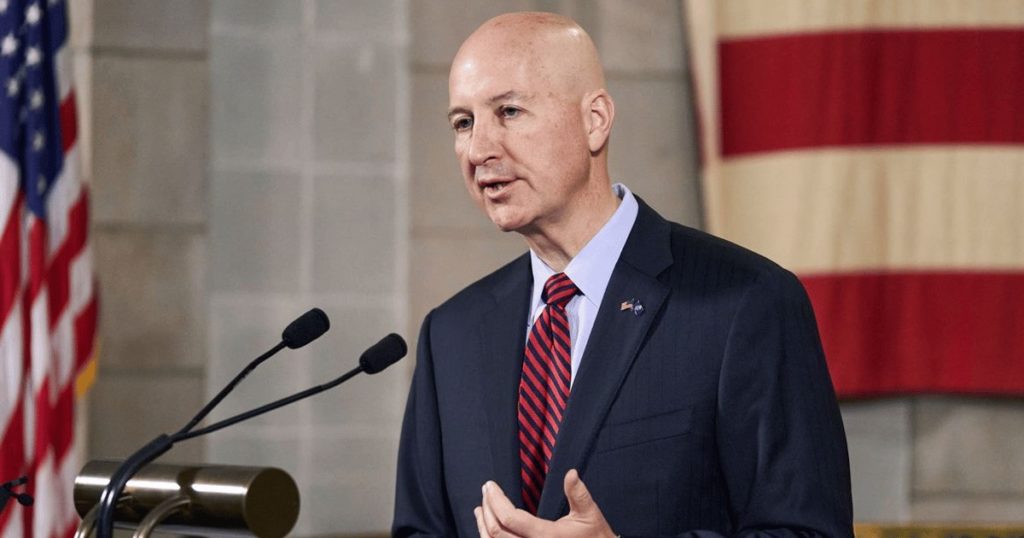Nebraska’s Republican Gov. Pete Ricketts says there is no evidence that supports medical marijuana as a treatment for PTSD, adding that he will continue to oppose the legalization of cannabis in the Cornhusker State. His comments are in sharp contrast to the view of his predecessor Bob Kerrey who, in 2010, called for medical marijuana to be dispensed at VA hospitals to treat PTSD.
Ricketts’s remarks come after the findings of two new studies added weight to the evidence that cannabis could be a viable alternative to help those suffering from PTSD. In the first study funded by the Colorado Department of Public Health and Environment, researchers found that PTSD sufferers who used cannabis experienced fewer PTSD symptoms and, pointedly, were more than twice as likely to recover from the condition (during the study) than those who were not using medical marijuana.
Amid the fierce debate, veterans are committing suicide at an alarming rate, with data drawn from the 2021 National Veteran Suicide Prevention Annual Report showing that over 6,000 veterans took their lives in the US in 2019. And when considering the staggering stat that since 9/11, over 30,000 veterans have committed suicide —that’s four times more than the number of American military personnel who were killed in combat in Iraq and Afghanistan—suicide among veterans represents, to borrow from Tom Clancy, a clear and present danger.
“In God We Trust; All Others Must Bring Data.”
Hal Wortzel, a forensic neuropsychiatrist at the Department of Veterans Affairs, has also found that people with PTSD who used medical marijuana experienced adverse effects and recovered quicker compared to those who didn’t.
In an observational study, Wortzel’s team tracked two groups over the course of a few years: 75 people with PTSD who said they use marijuana and 75 people with the condition who did not consume cannabis. While Wortzel concedes the limitations of such studies, he says the results provide further evidence that marijuana has significant therapeutic benefits.
Specifically, says Wortzel, people who used marijuana reported fewer “hyper-arousal” symptoms—like constantly checking over their shoulder or anxiously reacting to loud sounds. “Among persons using marijuana for PTSD, relative to the group that was not using marijuana, we saw those folks using marijuana products get a little bit better more quickly, and they were about two and a half times more likely over the course of the study year to no longer meet criteria for PTSD than those folks who were not using marijuana products.”
Wortzel’s work, along with the Colorado Department of Public Health study, seemingly, deflates Ricketts’s assertion that “there’s no data to support that” medical marijuana can help PTSD sufferers. This is “really important” Wortzel adds, because “symptoms matter—I mean, PTSD symptoms are unpleasant and a source of suffering for lots of people—but at the end of the day, in addition to sort of alleviating symptoms, we want to see people getting back into life, engaging in work or other sort of activities that are just as important for our overall well-being and emotional health.”

Legal Stranglehold Hampers Research
Wortzel further laments how the ongoing federal prohibition on marijuana has put the brakes on further research. Researchers are currently prevented from giving research subjects cannabis, unless it is sourced from the National Institute of Drug Abuse (NIDA).
And crucially, the type of cannabis available through NIDA is quite different in terms of product type and potency from the cannabis that can be obtained from legal cannabis outlets. These restrictions may soon be relaxed, as there are a number of bills circulating through Congress aimed at loosening the cannabis clasp.
“In the world of cannabis, because marijuana and marijuana products are still technically federally illegal, to do those kinds of experimental studies, you have to use basically the marijuana product that’s been developed by the US government for that purpose, which, of course, is not the product that the vast majority of Americans are utilizing or purchasing in dispensaries like here in Colorado,” Wortzel noted.
Marijuana Moment, meanwhile, reports that the head of the NIDA has also decried the fact that researchers are currently limited to only using cannabis grown from a federally authorized source at the University of Mississippi for their studies… to the extent that it constitutes a public health concern.
This is what makes Wortzel’s study unique. Although observational (it didn’t require the administration of marijuana in a controlled, clinical setting), but noteworthy because participants were using cannabis sourced from outside the government’s garden.

Mounting Opposition
In 2020, a federally appointed panel tasked with developing recommendations to improve mental health treatment for military veterans criticized Congress and the executive branch, saying they need to “promote research into the therapeutic potential of marijuana and other psychedelics.”
Led by presidential appointee Jake Leinenkugel, Creating Options for Veterans Expedited Recovery (COVER) stated in a report that cannabis and psychedelics represent promising mental health treatment options for veterans that should be fully explored.
“The U.S. federal government’s policies have blocked externally valid, randomized clinical trials on the effects of cannabis.”
As for Ricketts, it appears that Cornhuskers are voicing their opposition to their governor. A ballot petition drive to decriminalize medical marijuana that helps suffering patients, including veterans, is gaining momentum in Nebraska. News Now Omaha reports that organizers have collected about 40,000 signatures for each of their two petitions toward their goal of garnering 87,000 valid signatures by July 7, ahead of the November 8 poll.

Enjoyed that first hit? Come chill with us every week at the Friday Sesh for a freshly packed bowl of the week’s best cannabis news!

















